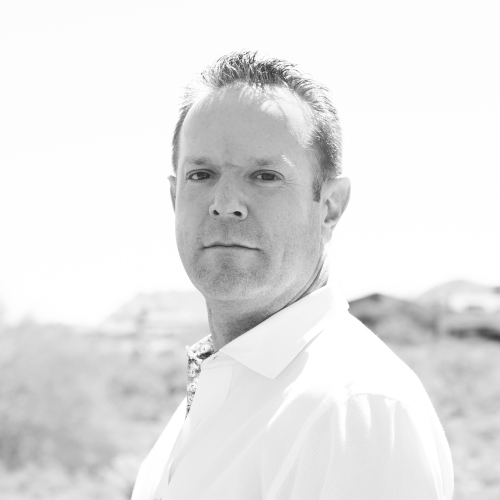
It’s understood that financial institutions and mortgage companies will always have to walk a difficult tightrope of regulations. On one hand, they have customers to respect, protect, and serve. But mortgage servicers also have investors, government-sponsored entities (GSEs), regulators, and shareholders who demand performance excellence across all aspects of a company. On both sides of this equation, laws define the parameters. Michael Hollerich, chief compliance officer for Ocwen Financial Corporation, knows these parameters well.
As a seasoned financial services executive with stops at PwC, ABN AMRO, and HSBC over a twenty-plus-year career, there is little that Hollerich hasn’t encountered. Now, the breadth of his experience coalesces well with how he helps Ocwen, which has thousands of employees around the world, work in compliance with the multitude of rules and guidelines of various regulatory agencies while servicing the needs of more than one million homeowners.
Following the lead of the Consumer Financial Protection Bureau (CFPB), which was created by Congress and the Obama administration in 2010, many state-level regulators are becoming more focused on the mortgage loan industry and consumer protection.
Ocwen grew in response to the national financial crisis, acquiring underperforming mortgage portfolios that required an experienced specialty servicer. Because Ocwen is one of the largest nonbank mortgage servicers, and given that a large portion of its servicing portfolio is made up of nonconforming mortgages, the company inherently is subject to close scrutiny by regulators.
So, the question professionals such as Hollerich must constantly ask is how a myriad of new regulations at both the state and federal level—and new interpretations of existing regulations—impact the company’s ability to meet the needs of both its customers and investors alike.
“The regulatory landscape is challenging for sure, but we embrace it and understand that compliance is not optional,” Hollerich says. “It is our job to implement the regulations in a way that creates the most transparency for the consumer, and if we can do that successfully, then everyone is better off.”
Hollerich emphasizes that any regulation that drives positive outcomes for consumers is good for Ocwen because it ends up keeping people in their homes, which retains them as customers. “The reality is that we need to provide sound financial solutions that work for the consumer,” he says.
Since 2008, Ocwen has completed roughly 765,000 loan modifications and has provided billions of dollars in debt forgiveness. “Our company has changed people’s lives and stabilized communities by helping hundreds of thousands of homeowners avoid foreclosure,” Hollerich says.
Similar to almost every major financial institution, Ocwen has faced new regulatory challenges in the aftermath of the financial crisis. That’s where Hollerich plays perhaps his most important role: ensuring that compliance resources are deployed in a manner that ensures every customer is treated fairly and the company remains compliant.
Since he joined Ocwen in 2015, the company undertook a major overhaul of its risk and compliance management infrastructure to transform the company and ensure compliance with all regulatory requirements.
“Today, Ocwen is a better and more mature company,” Hollerich says. “We are able to respond to an increasingly complex mortgage servicing environment and are positioned for growth. To continue to succeed, Ocwen must focus on continuous improvements against a back-drop of requirements that allow little room, if any, for error.”
That task falls into the realm of workplace culture, where Hollerich can leverage his past experiences leading much larger organizations through operational and cultural transformations. Working out of Ocwen’s Addison, Texas, operations center, he has implemented a “see something, say something” mentality that empowers and requires all employees, regardless of their position in the company, to identify and raise issues that may impact the company’s level of compliance.
“It’s important that every employee understands what is expected of them from a compliance standpoint,” he says. “Everyone is responsible to look out for what might be a mistake and to raise issues. And no matter who you are, you should not feel subject to retaliation.”
“It’s important that every employee understands what is expected of them from a compliance standpoint. Everyone is responsible to look out for what might be a mistake and to raise issues.”
The initiatives he’s implemented are what Hollerich calls Compliance 101, where everyone must be mindful of what the regulations call for, and each business function must have the infrastructure that ensures adherence in everything that’s being done, he says.
“Every person working here should know what their compliance responsibilities are,” he says, adding how, in the mortgage industry, the greatest number of mistakes generally happen at that point of borrower contact.
Building employee awareness of compliance expectations was one of Hollerich’s first initiatives at Ocwen. He hired an experienced compliance communications team to orchestrate such initiatives as requisite online training modules and monthly compliance themes that create top-of-mind awareness and education.
Lest anyone think that’s an overemphasis on one area—keeping in mind the tasks and responsibilities of most of Ocwen’s employees are to service the mortgage loans of more than one million homeowners—it’s important to note it’s not just a single federal regulator that oversees the company’s business.
“As a nonbank licensed in every state we do business, we must build solid relationships and demonstrate compliance with our state regulators as well,” Hollerich says.
That means having an infrastructure to educate employees and build controls that consider multiple sets of regulations, in addition to the guidelines established by the Federal Housing Finance Agency, Ginnie Mae, Fannie Mae, and Freddie Mac.
“What most impresses me about working with Michael is his ability to proactively get ahead of legacy issues with upwards of fifty different regulators,” says Paul Noring,
managing director of Navigant. “Most clients are reactive, whereas Michael drives engagement and ultimate resolution.”
Despite regulatory complexity, the culture at Ocwen is focused first and foremost on what’s best for the homeowner. “Our motto is to delight the customer,” Hollerich says. “We believe that anyone experiencing a financial hardship is more likely to remain in their home if Ocwen is their loan servicer.”
Photo: Lori Pressley

